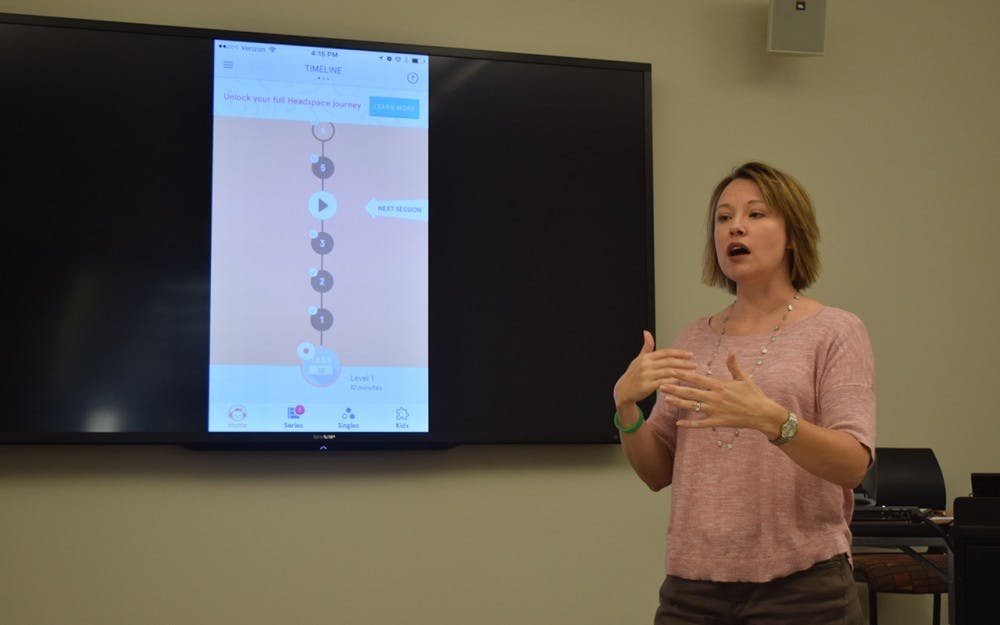Happiness isn’t always dependent on circumstances, said Chris Meno, coordinator of outreach and consultation at the Counseling and Psychological Services, during the Think Happy Monday Motivator workshop. In reality, only about 10 percent of a person’s overall happiness is affected by situations such as breakups or bad test grades.
“It’s really not very much,” Meno said. “Those things happen, and then they pass. They don’t stick around.”
About 50 percent of happiness is caused by genetics, Meno said. The 40 percent remaining is caused by a person’s choices, Meno said. At the workshop on Monday, Meno went through several exercises, especially mindfulness meditation, with students to demonstrate how a person’s outlook can affect their mood.
This type of meditation usually consists of a person relaxing and focusing solely on their breathing for a few minutes out of the day.
“Mindfulness activates the left prefrontal cortex, and that’s the same place where you experience happiness,” Meno said.
Meno introduced an app called Headspace. Users take 10 minutes of their day to plug in their headphones, press play and follow through with meditation activities given by a British male speaker.
These sessions are spent focusing on the user’s breathing, which is an important aspect of mindfulness, Meno said, describing how when a person’s breathing becomes more shallow and the heartbeat increases, panic appears.
Other important factors are a person’s thoughts and being present in the moment.
“Mindfulness is not about emptying your mind of thoughts — that’s not possible,” Meno said. “Sometimes people get frustrated with it because they think they’re doing it wrong and they stop.”
She told students they’re not going to feel better right after a mere 10 minutes. Meno compared consistent mindfulness to visiting the gym every day.
After four exercises, though, Meno said the brain begins to experience neuron changes. In six weeks, the neurons become more densely connected and act as a bridge between emotions and a person’s ability to cope with emotions.
Meno gave each student a piece of chocolate and asked them to savor it by using all their senses. After the exercise, students said they were surprised. They noticed different aspects about the treat they hadn’t realized before.
This related to Meno’s point about thinking happy. She described how viewing life through a different lens, focusing more on the positives than the negatives, can be more uplifting. Meno listed several activities, ranging from walking around campus to enjoying a nice shower.
“There is pretty much no activity you can’t savor,” Meno said.
CAPS provides Monday Motivators, part of the Scholars’ Commons Workshops Series, every so often to teach students tools to deal with stress and college life.
“Everyone tries to make it out to seem like they have no control over their own happiness,” said Lindsay French, junior human biology major. “I felt like I was really not in control. Apparently I am very in control.”
French has been attending counseling and CAPS events recently to help relieve stress.
“I think people should just go, even if they don’t think they need it,” French said. “They could always be doing more for their mental health.”




